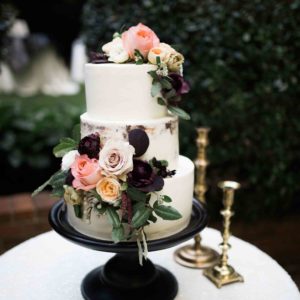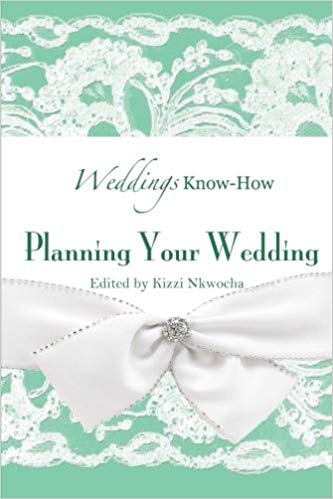
Picture the scene…
The bride and groom giggle contentedly. Cameras flash around them as their closest friends and family vie to capture the moment. Their hands, united as one, grasp the cake knife and steadily push it through the soft, white icing. The scent of fresh Sweet Peas, cascading down the cake, fills the air.
Encouraged by onlookers, the bride takes a small piece of her wedding cake and offers it to the lips of her new husband. Smiling, he takes a bite to rapturous applause.
Suddenly he feels a gripping pain in his stomach. Clenching his fists to his abdomen, he drops to the floor and immediately dies.
OK, so perhaps I am being a little melodramatic, but should we be concerned about using fresh flowers on wedding cakes?
The British Sugarcraft Guild is very clear. After hearing that a handful of florists die each year from coming in contact with poisonous saps they contacted DEFRA asking for a ban on all inedible flowers on cakes “Anything on a cake should be edible or food standards approved”.
I spoke with The Food Standards Agency to get clarity on the current situation. In the UK, we are governed by Regulation (EC) 1935/2004. Thankfully the very nice man at the FSA kindly explained to me, in layman’s terms, what this means
You should not place anything on a cake which is harmful – Do not use toxic flowers or foliage. This might seem obvious, but I have seen a very famous UK cake decorator place Amaryllis flowers on a cake. That’s Amaryllis Belladonna in Latin, to you and I!
The flowers should not change the composition of the icing – By that they mean the PH or chemical balance.
The flowers should not change the organoleptic properties of the cake (yes, I said “what?” when I heard this too). Essentially your flowers shouldn’t affect the taste, smell, texture or appearance of your cake in any way. For example, if the flowers are particularly aromatic it could change the taste and smell of your icing.
Clear So Far?
Ok, so your bride has chosen non-toxic flowers for her wedding cake. Let’s say roses, for this example. Are we all set to go?
No!
You need to ensure that the flowers have not been exposed to pesticides (taking us back to point 1 above). Organically grown flowers aren’t necessarily any better. Some ‘organic’ flowers are sprayed with nicotine which has a high toxicity. Just because it is labelled as natural it doesn’t mean it is necessarily good for you.
If you do manage to find flowers which are grown without the use of pesticides your next job is checking for good general food contact hygiene levels – whilst I love quirky, contemporary wedding cakes, I would not like mine adorned with a dancing conga of green-fly!
All in all, I don’t wish to sound so negative and perhaps I am scaremongering a little. The most important ‘guideline’ we need to follow is our own common sense.
- Why not suggest sugar flowers? Not only do they look stunning, but will last for years as a keepsake.
- If you do want to use fresh flowers ensure that they are non-toxic
- Consider the use of edible flowers
- Speak with your florist about supplying pesticide-free flowers
- Consider designs which do not have the flowers in direct contact with the icing
- Suggest the use of a faux cake for the display and a separate cutting cake in the kitchen. The couple can have any flowers they want without fear of poisoning their guests.
- Ask yourself “Would I eat this?”

This is a sample taken from the chapter How Not To Poison Your Clients: Advice On Using Fresh Flowers On Wedding Cakes in the book Weddings Know-How: Planning Your Wedding. The chapter is written by Samantha Pilling. Weddings Know-How: Planning Your Wedding is available from Amazon.